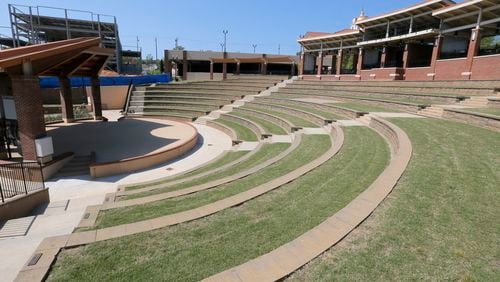After decades of suburban development that emphasized private property over public space, metro Atlanta is rediscovering walkable urban-style communities, an urban design expert told the region’s leaders Friday.
Georgia Tech professor Ellen Dunham-Jones said the region is embracing new and redeveloped downtowns and public accommodations like parks, farmers markets and concerts that are "more we than me."
“For the last 70 years, the decentralization of development patterns in suburbia, with an emphasis on private space, has been dominant,” Dunham-Jones said at the Atlanta Regional Commission’s State of the Region Breakfast.
“But that’s changing. Atlanta has reversed that pattern,” she said. “Today, our suburbs are actually following our (urban) centers.”
Dunham-Jones, director of Georgia Tech’s urban design master’s program, spoke to several hundred business and community leaders at the Georgia World Congress Center. It was ARC’s chance to highlight Atlanta’s economic progress, but also some areas in need of improvement.
ARC Executive Director Doug Hooker noted the region's swift population and jobs growth – unemployment stands at just 4.5 percent. But he also spoke of the precarious lives of many residents. Only 52 percent of respondents in a new poll released Friday said they could cover a $400 emergency with a cash, check or debit card.
Dunham-Jones said part of the solution to economic inequality is to preserve existing affordable housing and to build more. She also urged the region’s leaders to embrace shared transportation like driverless shuttle buses, as well as communal urban life.
“Aristotle once said the point of public space is to teach us how to live well together,” she said. “I can think of no greater goal for a re-centered metro Atlanta.”
About the Author








